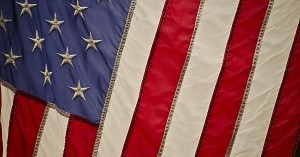September 1, 1787 (Click here to read Madison’s notes)
Today’s session was so brief, I am reproducing Madison’s entire entry:
In Convention, — Mr. BREARLY, from the Committee of eleven to which were referred yesterday the postponed part of the Constitution, and parts of Reports not acted upon, made the following partial report:
“That in lieu of Article 6, Sect. 9, the words following be inserted, viz: ‘The members of each House shall be ineligible to any civil office under the authority of the United States, during the time for which they shall respectively be elected; and no person holding an office under the United States shall be a member of either House during his continuance in office.’”
Mr. RUTLEDGE, from the Committee to whom were referred sundry propositions, (see twenty-ninth of August) together with Article 16, reported that the following additions be made to the Report, viz:
“After the word ‘States,’ in the last line on the margin of the third page, (see the printed Report,) add ‘to establish uniform laws on the subject of bankruptcies.’
“And insert the following as Article 16, viz: ‘Full faith and credit ought to be given in each State to the public acts, records, and judicial proceedings of every other State; and the Legislature shall, by general laws, prescribe the manner in which such acts, records, and proceedings shall be proved, and the effect which judgments obtained in one State, shall have in another.’”
After receiving these Reports, the House
Adjourned.
1787 Constitutional Convention Series
To read my series examining the proceedings of the Constitution Convention, click here. In this series, I am writing about any obvious influences on the development of the Constitution which were mentioned by the delegates to the Convention. Specifically, I am testing David Barton’s claim that “every clause” of the Constitution is based on biblical principles. Thus far, I have found nothing supporting the claim. However, stay tuned, the series will run until mid-September.
Constitutional Convention Series (click the link)
To follow on social media, click the following links:
Facebook (blog posts and news)
Facebook (Getting Jefferson Right – history news)
Twitter
